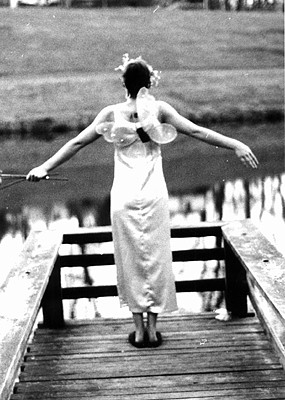All Nonfiction
- Bullying
- Books
- Academic
- Author Interviews
- Celebrity interviews
- College Articles
- College Essays
- Educator of the Year
- Heroes
- Interviews
- Memoir
- Personal Experience
- Sports
- Travel & Culture
All Opinions
- Bullying
- Current Events / Politics
- Discrimination
- Drugs / Alcohol / Smoking
- Entertainment / Celebrities
- Environment
- Love / Relationships
- Movies / Music / TV
- Pop Culture / Trends
- School / College
- Social Issues / Civics
- Spirituality / Religion
- Sports / Hobbies
All Hot Topics
- Bullying
- Community Service
- Environment
- Health
- Letters to the Editor
- Pride & Prejudice
- What Matters
- Back
Summer Guide
- Program Links
- Program Reviews
- Back
College Guide
- College Links
- College Reviews
- College Essays
- College Articles
- Back
Something Greater Than Me MAG
A child was pinned to the floor outside myclassroom. The aide was sitting on top of him, asking him to be calm.The crying nine-year-old struggled to break free. Inside the classroom,the lesson continued with the door shut, without further acknowledgmentof the goings-on across the threshold.
The treatment center is aschool for five- to twelve-year-old emotionally disturbed children. Theprincipal told the volunteers in detail what we could expect: fights,pinned students and obscenities from the mouths of small children. Atfirst I did not absorb any of this. I assumed it would be like in themovies where a new teacher arrives at a rough school and wins over rowdystudents with tough love, turning them into overachievers in theprocess. My experience was not so Hollywood efficient.
As an onlychild in a rural area, I had mostly had contact with children my own ageor with whom I had gone to school. I had never been so close to lives sodifferent from my own. I was stunned that a child could live in terriblecircumstances and still function. One child was particularly attentiveto detail because he had been in an abusive household. His situation hadto be explained to me. I consider myself perceptive; how could I havenot realized that about a child I was with everyday?
After the first day, I learned that children, no matter whattheir situation, are still children. I had worried they would be crude,aggressive and difficult. Though a fight would break out now and then,for the most part they were excited to have a new person in theclassroom. When there was a problem, no teacher or aide seemed shockedby anything. The nonchalance surprised me. Later, I realized why.Originally, I took each time a child had to be restrained as a personaldefeat because I'd been the one who set his task. What could I have saidor done differently? These outbursts were on my conscience. Disciplinemight be best for them, but it did not seem so at the time.
Iwas in a particularly delicate situation because I was not allowed tointervene physically under any circumstances. I was not trained as theteachers and aides were. Everything had to be worked outverbally.
This prevented me from growing too close. I was afraidto make demands; I could not enforce them and I did not want to get oneof my kids in trouble. But I came to understand that scuffles wereunavoidable. They happened no matter what I or any teacher said or did.That was why the faculty seemed so unflappable; they understoodrestraint was sometimes a by-product of instruction.
Iformed a strong bond with one particular student. Every day when Iwalked through the door into the classroom, his pudgy pace would lightup and he would dash over and latch onto me. Every math session, heasked me for help. Convincing a nine-year-old to do his math, I found,is akin to negotiating a treaty in the Balkans; there had to be a reasonand reward to complete each and every problem. I had prided myself onskills of negotiation; I understood principles of quid pro quo.Child-ren, though, are rarely aware of theories ofdiplomacy.
With this special relationship, my time at the centermeant more than I could have imagined. Someone relied on my appearanceeach week. The clinician said the child had no constant father figure.Because I was a male who came every week, I was a little like one.Having a child depend on me was something greater than me, and that wasmost significant of all.

Similar Articles
JOIN THE DISCUSSION
This article has 1 comment.

0 articles 0 photos 12292 comments